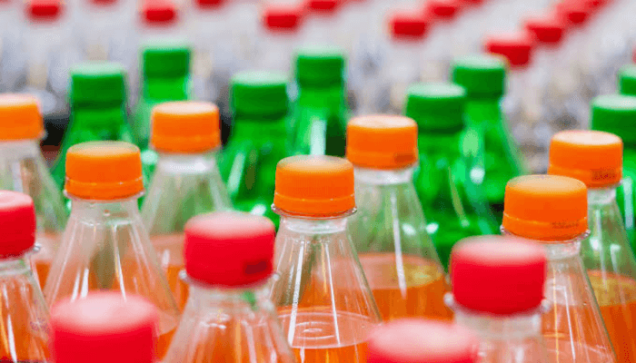Corporate Accountability and Public Participation Africa (CAPPA) and the National Sugar-Sweetened Beverage Tax Coalition have warned of the dangers of unrestrained consumption of sugar-sweetened beverages (SSBs), saying the SSBs industry is increasingly undermining public health for profits.
Citing research findings, they accused the industry of promoting misleading narratives, clouding the public’s understanding of the true health implications associated with consumption of their products.
Speaking at a media briefing by CAPPA and the Coalition on Pro-health Policy (Sugar-Sweetened Beverages Tax) with the theme: SSBs Tax: Industry Undermining Public Health for Profits, they said SSBs, including soda and fruit drinks, were contributing to the rising cases of obesity, diabetes and heart diseases and urged the government to check the problem by increasing the Pro-health Policy (SSB tax) rate and passing it into law, among others.
Executive Director of CAPPA, Akinbode Oluwafemi stressed the importance of reinforcing the dangers of SSB consumption, the need for an immediate review of the tax and a call for government’s stringent action on industry activities, as the festive period draws closer.
“For years, the industry has painted a picture of sugary drinks as innocent pleasures. But behind the vibrant colours and catchy jingles lies a grim reality. SSBs are laden with empty calories, fuelling a public health crisis of diabetes, obesity and heart disease. The statistics are sobering: one in ten Nigerians now suffer from diabetes, placing a crippling burden on individuals and Nigeria’s healthcare system,” he said.
He noted that the manufacturing industry “actively targets children and youths, bombarding them with sugary advertising and social activities and normalizing unhealthy habits at a crucial stage in their development.”
He maintained that the “predatory marketing” exploits the vulnerability of young minds, shaping preferences that echo for years, adding: “The consequences are far-reaching as diabetes and its complications steal years of healthy life, erode productivity, and strain resources, leaving families shattered and futures uncertain.”
Oluwafemi further argued that during the festive cheer, the SSBs industry drowns out public health concerns with what he described as “a deafening roar of misinformation,” just as they evade personal responsibility and ignore their aggressive marketing tactics that target the most vulnerable: children and low-income communities.
“While families come together for festive gatherings, the SSB industry feasts on obscene profits, built on the backs of collective health. These producers annually especially during festive seasons incorporate corporate activities like festivals, awards and sponsoring popular events, as a way of promoting their unhealthy products.”
He described the industry’s cleaning up of shorelines, provision of motorised boreholes, different paid awards and posturing as helpers of communities as “intense greenwashing.”
“They are cleaning the shoreline of plastic wastes they created, providing water for communities they have used up and contaminated their water. All these are done to distract the people from the health dangers they are inflicting on the population,” he added.
Oluwafemi urged Nigerians to “choose public health over corporate greed and canvass an increase in the current N10/litre tax on the unhealthy drinks which implementation began in June 2022 and had proven to reduce consumption by about 20 percent in over 100 countries that have already implemented the tax.
“SSBs tax is a public health intervention, a nudge towards healthier choices, a disincentive to the excessive consumption of sugar. Studies have shown that a 10 percent SSBs tax can lead to a significant decrease in consumption, particularly among low-income communities disproportionately affected by sugary drinks. The economic burden of treating chronic diseases far outweighs the tax revenue.
In his presentation titled: Unmasking the Truth: Navigating the Health Realities of Sugar-Sweetened Beverages in Nigeria, a Public Health Consultant, Dr. Francis Fagbule lamented that the industry has now become “Commercial determinants of health” in the country.
He said commercial determinants of health highlight the “influence that profit-oriented entities, particularly corporations and industries, have on shaping health-related behaviours and outcomes.”
Read also: Greenwashing schemes of multinationals hindering climate adaptation, mitigation efforts
Fagbule identified the industry’s commercial determinants tactics that play a significant role in influencing patterns of consumption including heavy advertising and marketing, industry lobbying and influence and misinformation campaigns.
“SSB industries often engage in lobbying activities to shape policies in their favour, resisting or diluting regulations such as SSB taxes or labelling requirements. The industry also engages in campaigns that downplay or dismiss the health risks associated with SSB consumption, creating confusion among the public. This misinformation challenges individuals’ ability to make informed and healthy choices,” he added.
Fagbule further noted that the industry, often driven by commercial interests, propagates narratives and arguments that downplay the risks associated with SSBs and undermine the need for higher and sustained SSBs Tax as a legislative act in Nigeria, adding that they also deny the health implications of their products and blaming the outcomes on individual choices.
He urged policymakers to increase the SSB Tax Rate to achieve at least a 20 percent increase in retail prices, aligning with WHO recommendations, pass the SSB Tax as a legislative act to ensure stability and long-term effectiveness, allocate Tax revenue to healthcare, education, social services, research and monitoring.
“The industry and Federal should focus on improving public health and addressing economic burdens and launch public awareness campaigns to educate the population about the health risks of SSB consumption and the benefits of the SSBs Tax,” he added.






